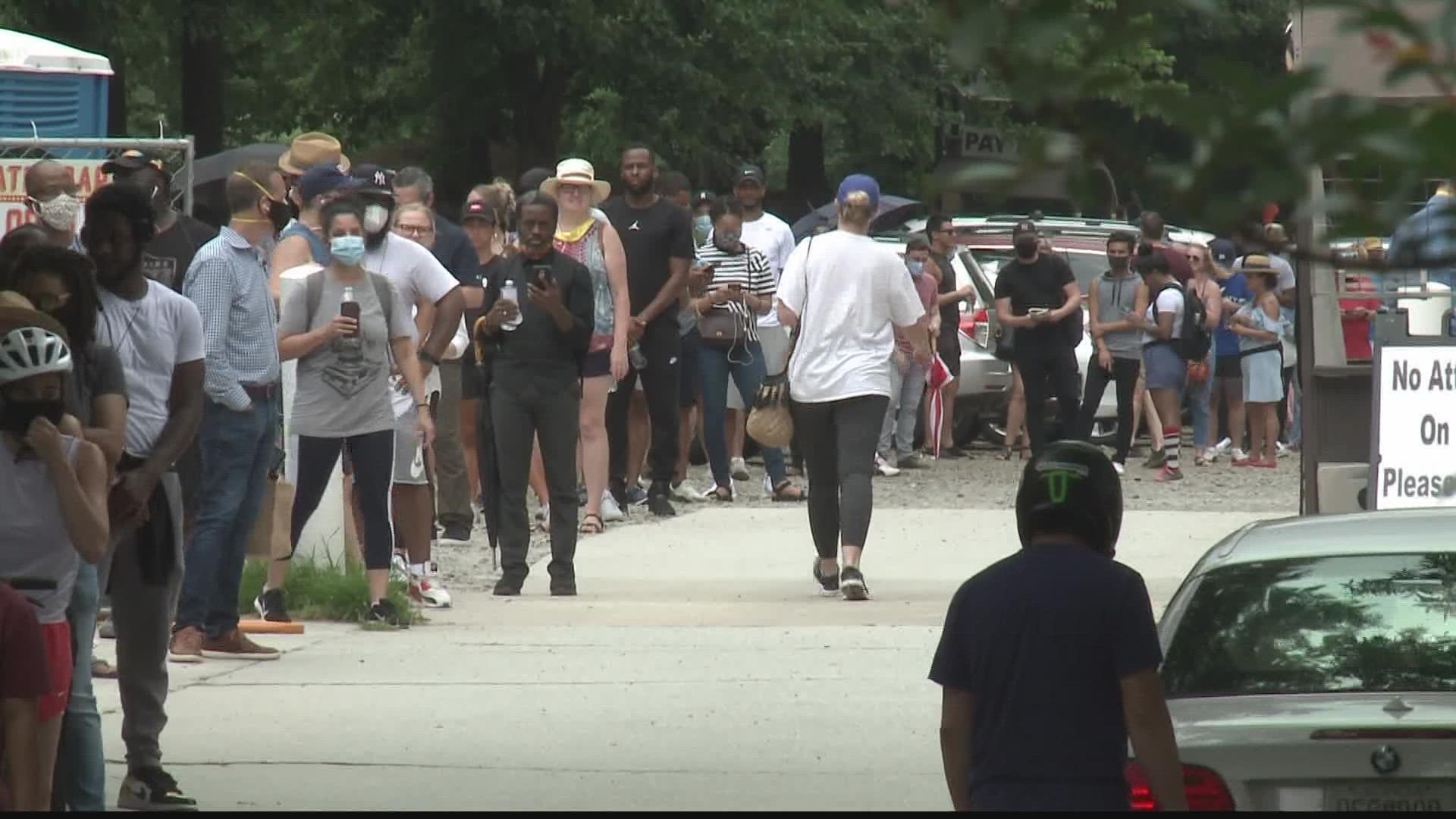ATLANTA — A federal court has will allow a part of Georgia's contested 2021 voting law that bans groups from giving food and bottles of water to voters waiting in line to remain in place this November.
The ban was just one piece of a 98-page bill containing dozens of changes to Georgia voting laws, but one that was seized on my critics as especially punitive.
Groups had sued Georgia arguing that the practice, known as "line relief" or "line warming," was protected speech encouraging people to vote.
They were first seeking a preliminary injunction to prevent Georgia from enforcing the ban this November.
“Line relief constitutes core expressive conduct,” said Davin Rosborough, a lawyer for the American Civil Liberties Union. “Its meaning is well understood in communities where plaintiffs provide it."
Lawyers for the state described the provision as a “bright line" drawn to prevent circus-like conditions around polling places that could spur concerns over the possibility of illegal campaigning or vote-buying.
Judge J.P. Boulee, a 2019 Trump nominee, said Georgia could go ahead with the ban until a final ruling on the matter comes in the future.
"Plaintiffs have not satisfied their burden to show that they are substantially likely to succeed on the merits of their claim that the Food, Drink and Gift Ban is unconstitutional within the Buffer Zone," he wrote in his ruling. "Consequently, the Court finds that a preliminary injunction regarding that provision is not warranted."
The plaintiffs noted that electioneering within 150 feet (45 meters) of a voting place was illegal before and after the new law, as was giving someone a thing of value in exchange for voting, and the state should enforce those laws to prevent improper campaigning.
They also argued that Georgia could have more narrowly tailored its law by limiting the value of what can be given to voters. But Ryan Germany, the chief lawyer for Secretary of State Brad Raffensperger, said that forcing overburdened poll workers to police whether gifts were illegally tied to voting or whether people were illegally campaigning was “a tricky proposition" that depended on the facts of each instance.
The state argued that an outright ban makes poll workers’ jobs simpler.
“It’s a bright line rule,” said lawyer Gene Schaerr. “No one has to decide how much is too much.”
Jess Unger, the staff attorney for the Power and Democracy program at Advancement Project National Office, issued a statement saying the ruling would "suppress voter turnout in Black communities."
“The criminalization of people providing food and water to voters who are waiting to cast their ballots is a direct restriction of the First Amendment right to freedom of speech. This particularly impacts communities of color in Georgia who have historically faced some of the longest waiting times at the ballot box in the country and currently are six times more likely than white voters to wait more than one hour to vote. What’s clear is that the line relief restrictions of SB 202 will ultimately suppress voter turnout in Black communities.
“When voters are brought food and water by volunteers or community leaders, they understand this to be a message of unconditional support, gratitude, and shared strength. It helps them stay in line and participate in the political process. To deny help to voters experiencing fatigue and hunger while waiting in hours-long lines is simply antithetical to the practice of democracy.
“Despite denying the preliminary injunction, the court found it ‘substantially likely’ that part of the line relief ban is unconstitutional. Our plaintiffs’ fight against this and other provisions of SB 202 continues.
“This bill was signed by Governor Kemp as part of a sweeping trend of over 400 new anti-voting laws introduced in the wake of the 2020 presidential election targeting communities of color across the country.”

